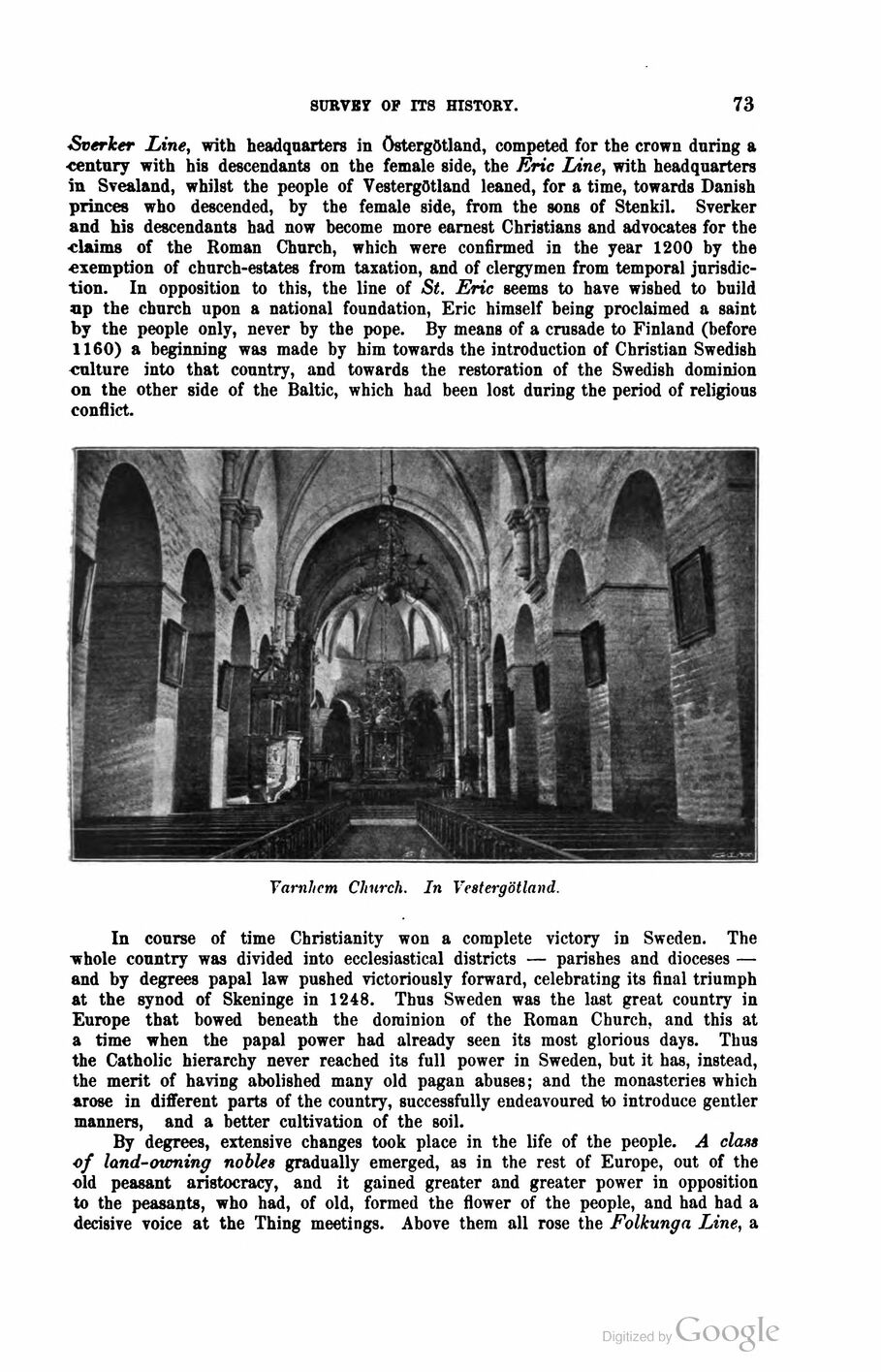
Full resolution (JPEG) - On this page / på denna sida - First part - II. The Swedish People - 1. Survey of its History. By E. Svensén, Author, Stockholm - The Catholic Period (1060/1523)

<< prev. page << föreg. sida << >> nästa sida >> next page >>
Below is the raw OCR text
from the above scanned image.
Do you see an error? Proofread the page now!
Här nedan syns maskintolkade texten från faksimilbilden ovan.
Ser du något fel? Korrekturläs sidan nu!
This page has never been proofread. / Denna sida har aldrig korrekturlästs.
SURVEY OF ITS HISTORY.
73
Sverker Line, with headquarters in Östergötland, competed for the crown during a
■century with his descendants on the female side, the Erie Line, with headquarters
in Svealand, whilst the people of Vestergötland leaned, for a time, towards Danish
princes who descended, by the female side, from the sons of Stenkil. Sverker
and his descendants had now become more earnest Christians and advocates for the
claims of the Roman Church, which were confirmed in the year 1200 by the
■exemption of church-estates from taxation, and of clergymen from temporal
jurisdiction. In opposition to this, the line of St. Erie seems to have wished to build
up the church upon a national foundation, Erie himself being proclaimed a saint
by the people only, never by the pope. By means of a crusade to Finland (before
1160) a beginning was made by him towards the introduction of Christian Swedish
culture into that country, and towards the restoration of the Swedish dominion
on the other side of the Baltic, which had been lost during the period of religious
conflict.
Varnhem Church. In Vestergötland.
In course of time Christianity won a complete victory in Sweden. The
whole country was divided into ecclesiastical districts — parishes and dioceses —
and by degrees papal law pushed victoriously forward, celebrating its final triumph
at the synod of Skeninge in 1248. Thus Sweden was the last great country in
Europe that bowed beneath the dominion of the Roman Church, and this at
a time when the papal power had already seen its most glorious days. Thus
the Catholic hierarchy never reached its full power in Sweden, but it has, instead,
the merit of having abolished many old pagan abuses; and the monasteries which
arose in different parts of the country, successfully endeavoured to introduce gentler
manners, and a better cultivation of the soil.
By degrees, extensive changes took place in the life of the people. A class
of land-owning nobles gradually emerged, as in the rest of Europe, out of the
old peasant aristocracy, and it gained greater and greater power in opposition
to the peasants, who had, of old, formed the flower of the people, and had had a
decisive voice at the Thing meetings. Above them all rose the Folkunga Line, a
<< prev. page << föreg. sida << >> nästa sida >> next page >>